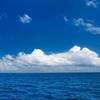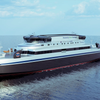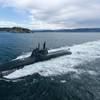IMarEST Role in Marine Mining
Marine mining, featured on the Institute of Marine Engineering, Science and Technology’s (IMarEST) Technical Activities Hot Topics Register, has added an important sustainability credential with the adoption of the revised ‘Code for the Environmental Management of Marine Mining’ by the International Marine Minerals Society (IMMS).
The Code is the first international instrument to address environmental aspects of this emerging marine industry from “cradle to grave”. Its comprehensive scope ranges from research, exploration, prospecting and exploitation to decommissioning and rehabilitation. IMarEST’s Senior Technical Adviser, Dr. Philomène Verlaan, who is also a member of the IMMS Executive Board, coordinated the consultation on, and revision of, the Code as a pro bono service to the Society.
“We congratulate Philomène Verlaan and the IMMS on this achievement,” says IMarEST’s Chief Executive, David Loosley. “Preventing damage to the marine environment is easier and usually cheaper than curing it - this important maxim underpins the IMMS Code; and is an important precursor to the increased levels of marine mining expected to take place in the very near future. We also congratulate Philomène who has been invited as a speaker and panellist at a Parliamentary Briefing at the House of Lords on 15 December 2011, where she will be discussing new developments in addressing ocean pollution in their international context.” The Briefing is sponsored by the Advisory Committee on Protection of the Sea (ACOPS) and the Group of Legislators for a Balanced Environment (GLOBE) International. It is chaired by the President of ACOPS, Lord Julian Hunt CB FRS.
The background to the Code
The IMMS originally developed the Code in 2001, at the request of pioneer marine mining stakeholders, to set a high environmental compliance bar early. The Code is necessary because little national environmental regulation of marine mining exists, especially beyond the territorial sea. Only the International Sea Bed Authority (ISA), a United Nations specialized agency working under the 1982 United Nations Convention on the Law of the Sea, is developing regulations for marine mining of the sea bed beyond national jurisdiction.
Setting broad directions in the context of shared values, rather than prescribing specific practices, the Code offers a framework to develop and implement a responsible environmental programme for marine minerals exploration and extraction, and to assess proposed and actual applications of best environmental practices at marine mining sites. The Code seeks to complement national and international marine mining environmental regulations where they exist, and to provide environmental principles and guidelines where these are absent or could be improved. Where the Code sets higher standards than those legally required, following those standards and improving the legally binding requirements are encouraged.
Designed to be a living, adaptive guide to the responsible development and use of marine mineral resources, responsive to improvements in best environmental practices, technological developments, changes in applicable regulations, and experience with its implementation, the Code requires a periodic review in consultation with marine mining stakeholders. With commercial-scale massive marine sulphide mining imminent, IMMS was requested to undertake a thorough revision and updating of the Code, with wide-ranging international consultation.
Upon its formal adoption at the 40th Underwater Mining Institute in September 2011, the Code became the only international instrument specifically designed to guide environmentally responsible and sustainable marine mining at present. Given its voluntary nature, it is hoped that the Code may assist in providing a useful example for the development of future legally binding national and international marine mining legislation. The Code is an instructive illustration of a constructive, proactive and timely stakeholder initiative to address the environmental concerns raised by an emerging industry.
The Code in full is available for free downloading from http://www.imarest.org/LinkClick.aspx?fileticket=Hn4EdUK-9bY%3d&tabid=216










